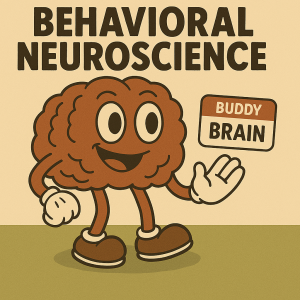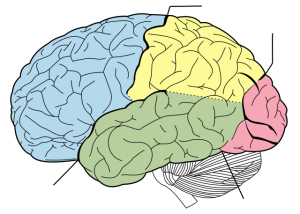Dr Jay Brown

Catalog Description: This course discusses the basic concepts of neuroscience, including neuroanatomy, neural functioning, & neurotransmitters. The basic principles are then applied to explain human behavior & psychological processes. (3 credits)
Description: All things psychological ultimately start out as a biological phenomenon. If you are happy, then there is a biological correlate for that. You think you are intelligent? Yep, that’s biology too. You fall in love? It’s up there in the brain. If we want to be educated psychologists, we need to have an understanding of the wizard behind the curtain!

Why This Course Is Important: Understanding the neural basis of behavior is fundamental across all fields of psychology. This knowledge has critical applications in:
- Clinical Applications: Mental health professionals use neuroscience principles to understand & treat mental disorders, understand medication effects, & develop evidence-based interventions.
- Educational Contexts: Understanding how the brain learns helps educators optimize instruction, support students with learning differences, & develop effective teaching strategies.
- Research & Development: Neuroscience research enables development of new treatments for neurological & psychiatric conditions, & guides drug development & pharmacological interventions.
- Professional Practice: Knowledge of brain function helps practitioners across psychology, medicine, counseling, & sports psychology apply evidence-based approaches to their work.

| Course Learning Objectives
Students will be able to… |
APA Goal |
| CLO1: Analyze the structural & functional organization of the nervous system & evaluate how neural mechanisms underlie psychological processes & behavior. | APA1: Knowledge Base in Psychology |
| CLO2: Evaluate neuroscience research methods & evidence to assess the validity of explanations for behavior & psychological phenomena. | APA2: Scientific Inquiry & Critical Thinking |
| CLO3: Synthesize neuroscience principles & apply them to understand real-world contexts including occupational settings, ethical issues, & contemporary debates. | APA4: Communication, Psychological Literacy, & Technology Skills |
| CLO4: Communicate complex neuroscience concepts clearly & persuasively in multiple formats (written, oral, visual) to diverse audiences. | APA4: Communication, Psychological Literacy, & Technology Skills |
Media Attributions
- Buddy the Brain © Microsoft Copilot adapted by Jay C. Brown is licensed under a CC0 (Creative Commons Zero) license
- The Creation of Adam © Michelangelo is licensed under a Public Domain license
- Brain Diagram © Mysid is licensed under a Public Domain license
